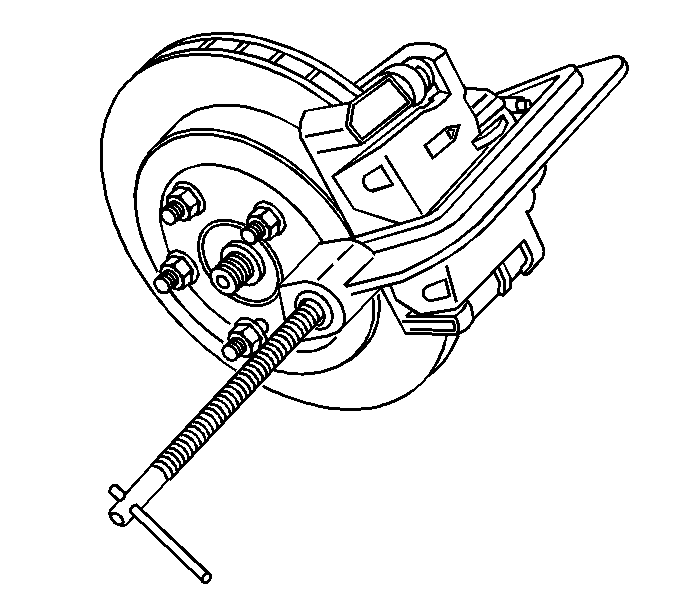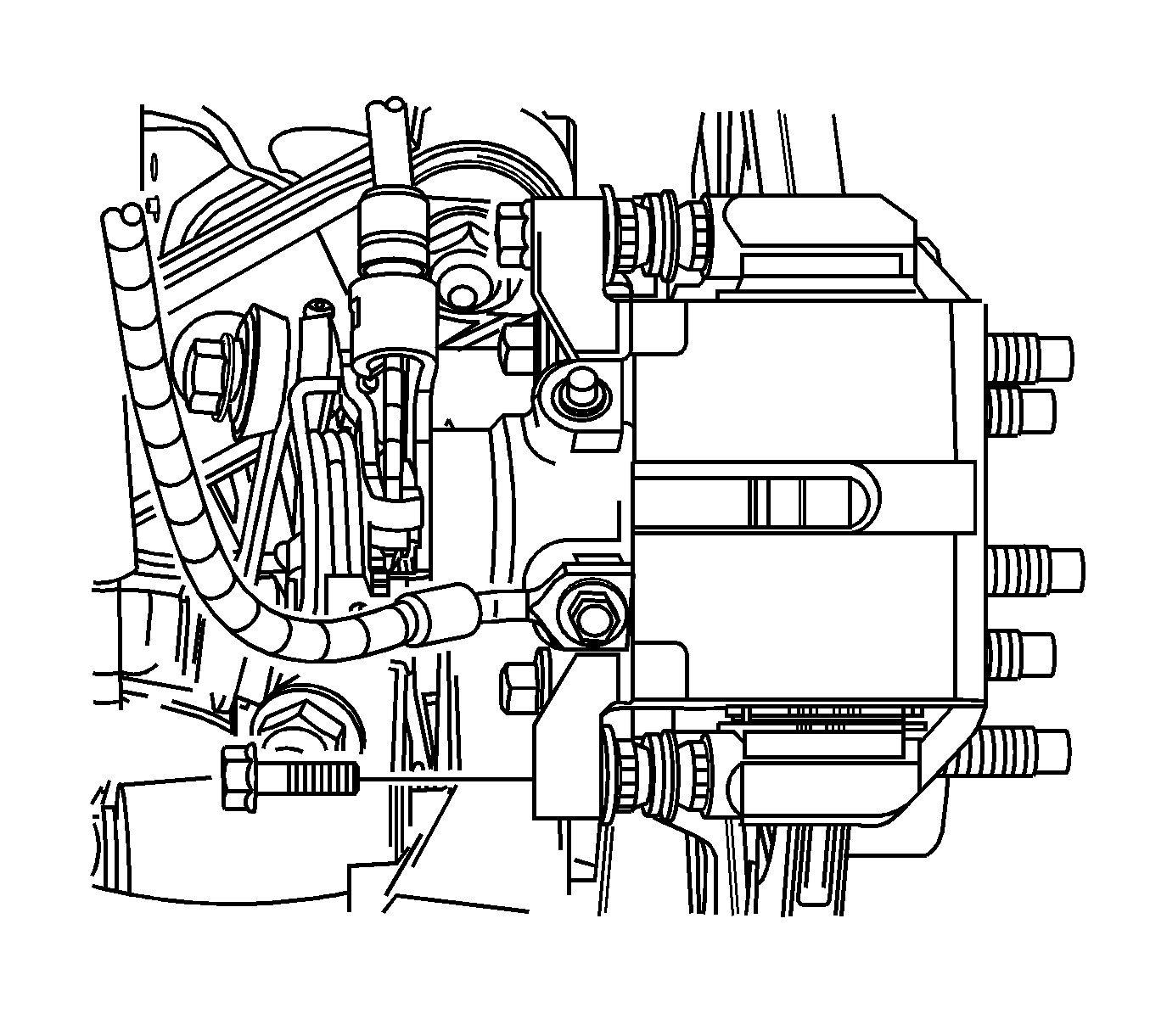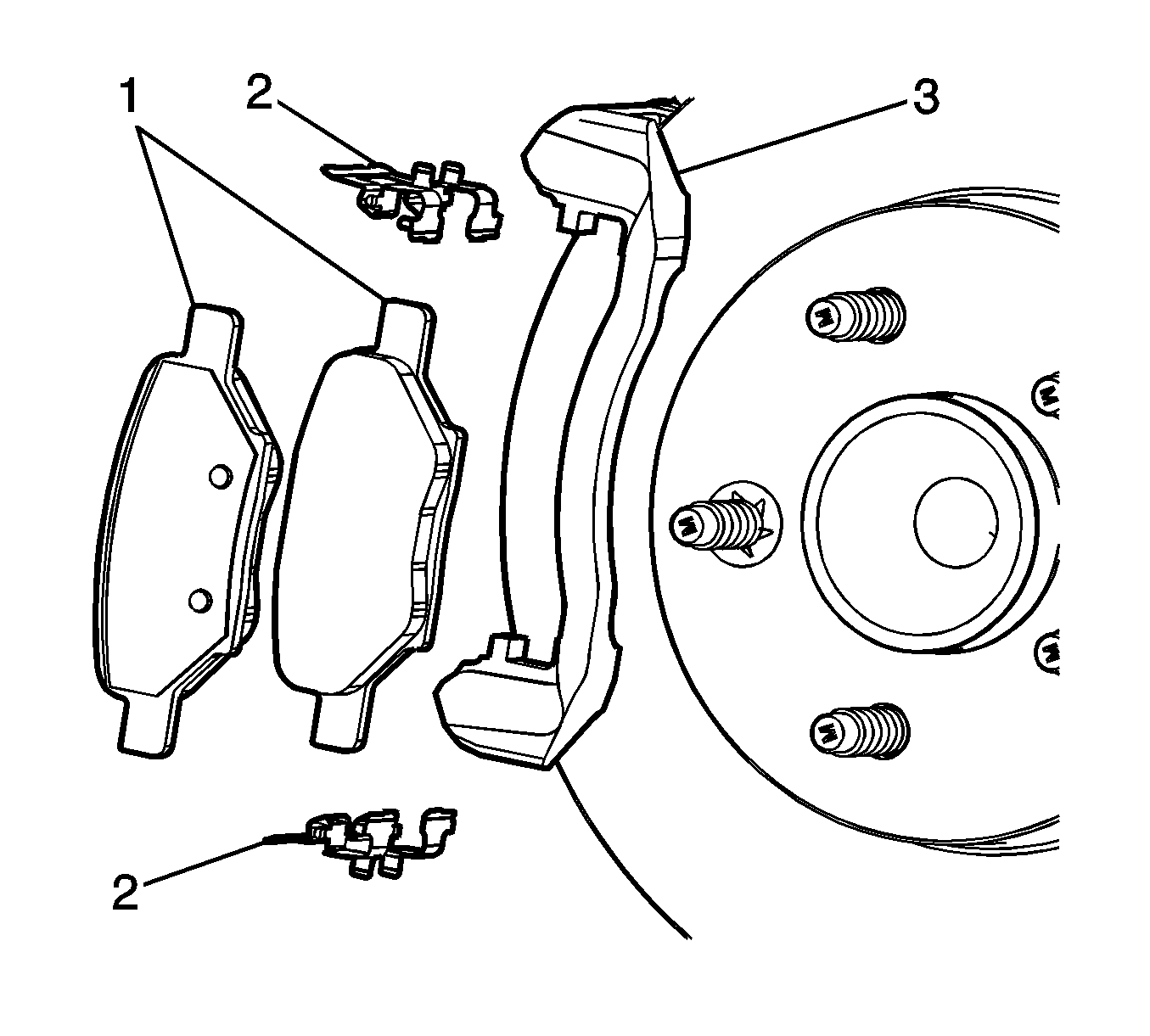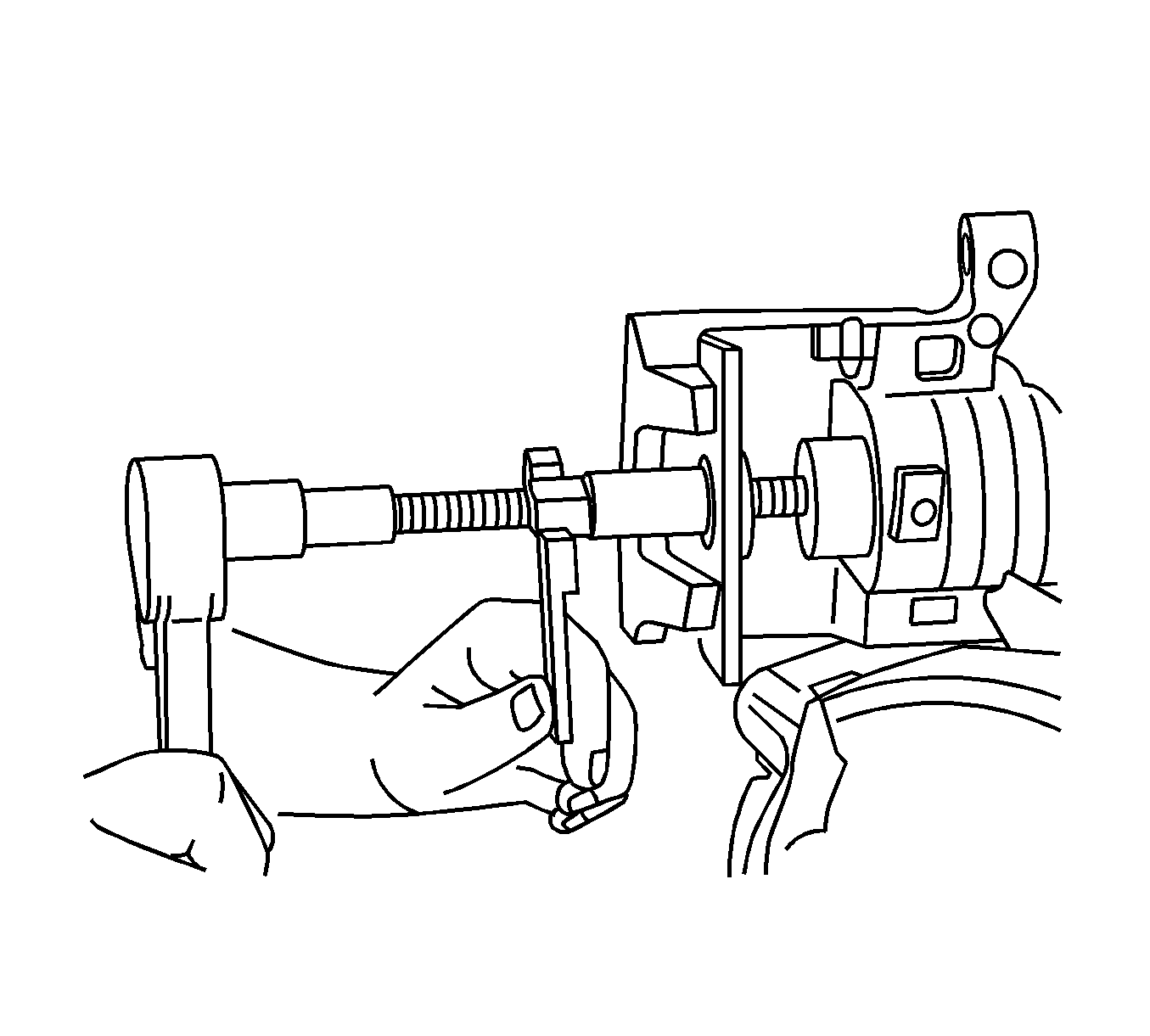Removal Procedure
- Inspect the fluid level in the brake master cylinder reservoir.
- If the brake fluid level is midway between the maximum-full point and the minimum allowable level, no brake fluid needs to be removed from the reservoir before proceeding.
- Raise and suitably support the vehicle. Refer to Lifting and Jacking the Vehicle .
- Remove the tire and wheel assembly. Refer to Tire and Wheel Removal and Installation .
- Install a large C-clamp over the body of the brake caliper with the C-clamp ends against the rear of the caliper body and against the outboard brake pad.
- Tighten the C-clamp until the caliper piston is compressed into the caliper bore enough to allow the caliper to slide past the brake rotor.
- Remove the C-clamp from the caliper.
- Remove the lower brake caliper guide pin bolt.
- Pivot the brake caliper upward from the caliper bracket and support the caliper out of the way with heavy mechanic's wire or equivalent; ensure that there is no tension on the hydraulic brake flexible hose. Do NOT disconnect the hydraulic brake flexible hose from the caliper.
- Remove the brake pads (1) from the brake caliper mounting bracket (3).
- Remove and the brake pad retainers (2) from the brake caliper mounting bracket (3).
Caution: Refer to Brake Dust Caution in the Preface section.

Notice: When using a large C-clamp to compress a caliper piston into a caliper bore of a caliper equipped with an integral park brake mechanism, do not exceed more than 1 mm (0.039 in) of piston travel. Exceeding this amount of piston travel will cause damage to the internal adjusting mechanism and/or the integral park brake mechanism.
Do not exceed 1 mm (0.039 in) of caliper piston travel.

Notice: Support the brake caliper with heavy mechanic wire, or equivalent, whenever it is separated from its mount and the hydraulic flexible brake hose is still connected. Failure to support the caliper in this manner will cause the flexible brake hose to bear the weight of the caliper, which may cause damage to the brake hose and in turn may cause a brake fluid leak.

Installation Procedure
- Inspect the following brake components for damage and corrosion:
- Do not attempt to clean away any corrosion. If damaged or corroded replace the necessary components. Refer to Rear Disc Brake Hardware Replacement , and Rear Brake Caliper Bracket Replacement .
- Inspect the brake caliper piston boot for deterioration, replace if damaged. Refer to Rear Brake Caliper Overhaul .
- Use a piston installation tool in order to twist the brake caliper piston into the brake caliper bore.
- Install the brake pad retainers (2) to the brake caliper mounting bracket (3).
- Install the brake pads (1) to the brake caliper mounting bracket (3).
- Pivot the brake caliper downward, over the brake pads and into the caliper bracket.
- Install the brake caliper guide pin bolt to the brake caliper guide pin.
- Install the tire and wheel assembly. Refer to Tire and Wheel Removal and Installation .
- Lower the vehicle.
- With the engine OFF, gradually apply the brake pedal to approximately 2/3 of its travel distance.
- Slowly release the brake pedal.
- Wait 15 seconds, then repeat steps 11 and 12 until a firm brake pedal apply is obtained; this will properly seat the brake caliper pistons and brake pads.
- Fill the brake master cylinder reservoir to the proper level. Refer to Master Cylinder Reservoir Filling .
- Apply and release the park brake lever 4 times.
- Burnish the pads and rotors. Refer to Brake Pad and Rotor Burnishing .

| • | Brake caliper guide pin bolts |
| • | Brake caliper guide pins |
| • | Brake caliper guide pin bushing |
| • | Brake caliper bracket boots |
| • | Brake caliper bracket |


Notice: Refer to Fastener Notice in the Preface section.
Tighten
Tighten the brake caliper guide pin bolt to 35 N·m (26 lb ft).
